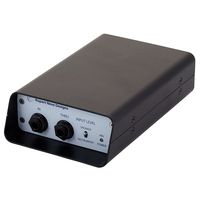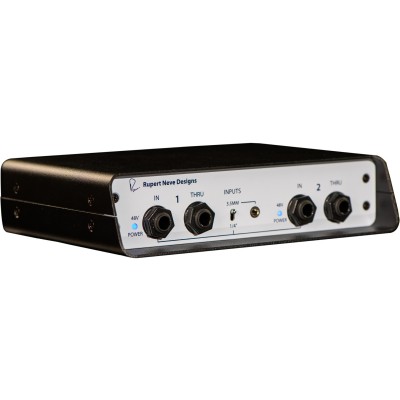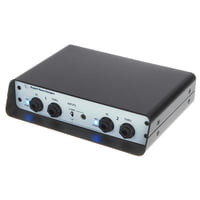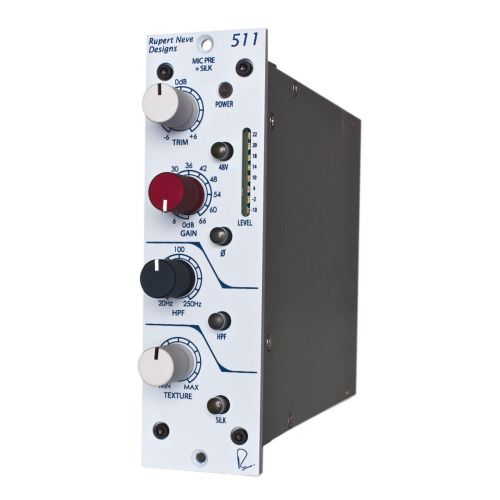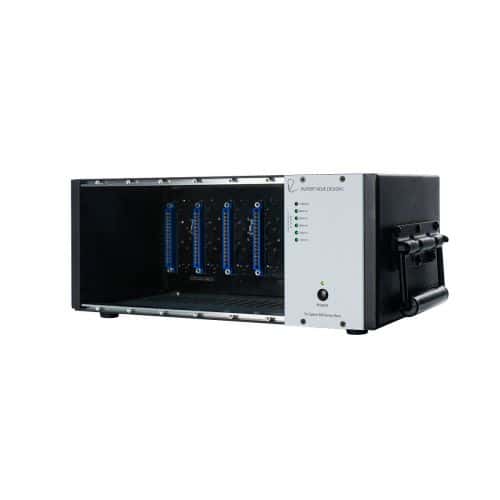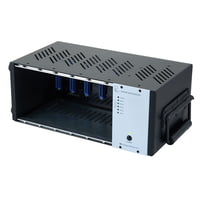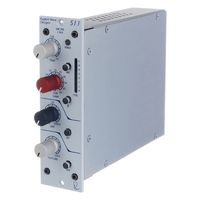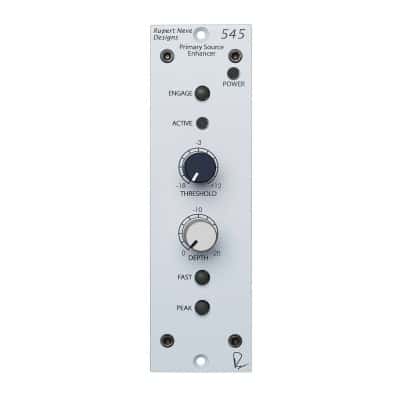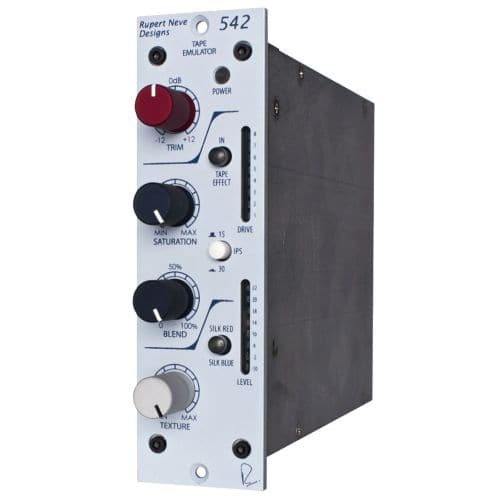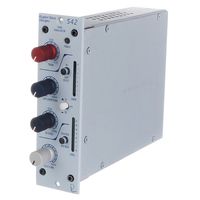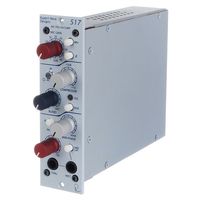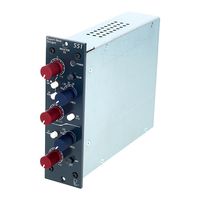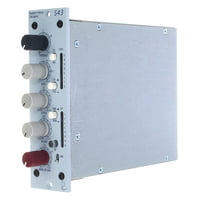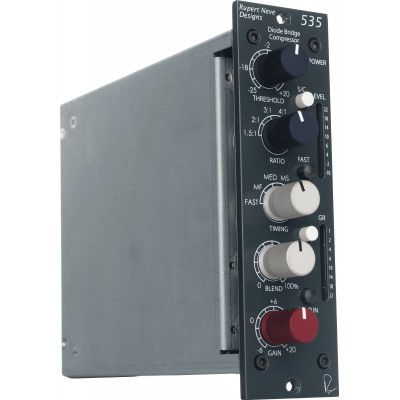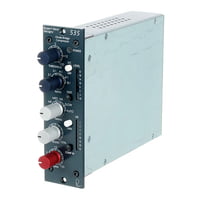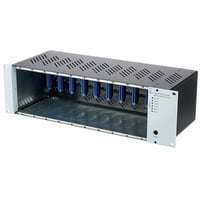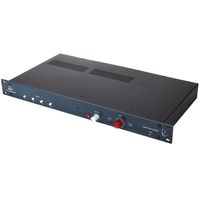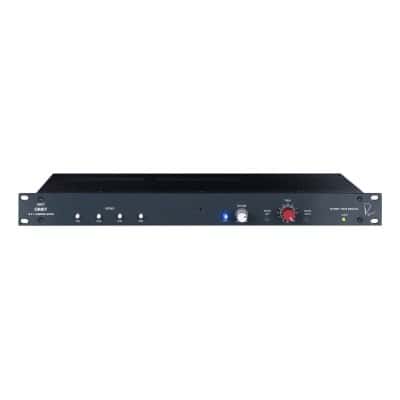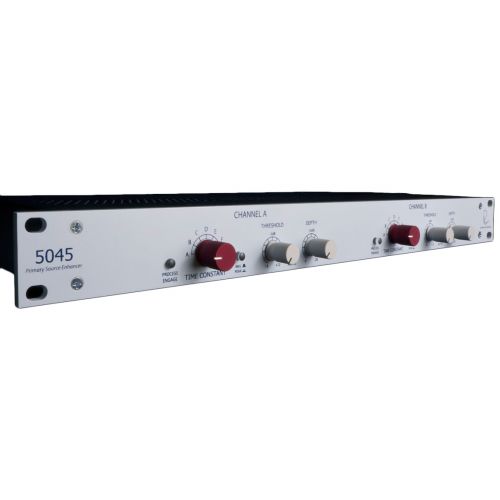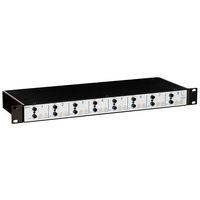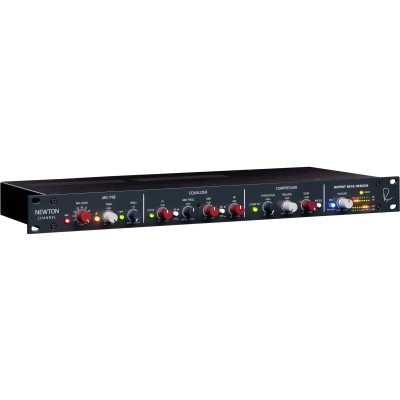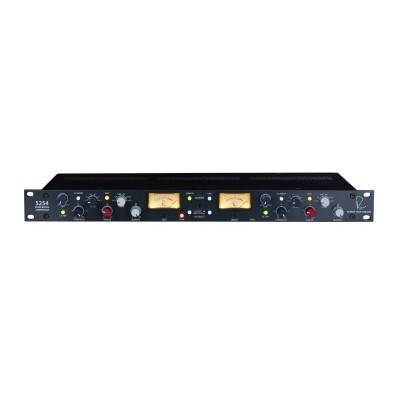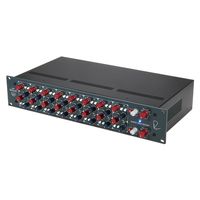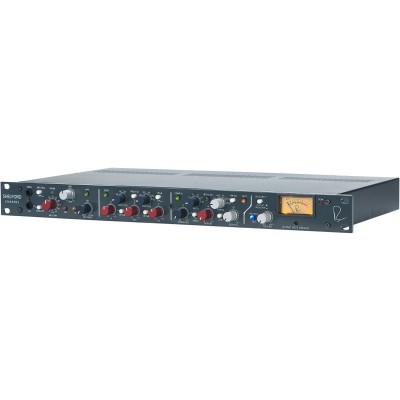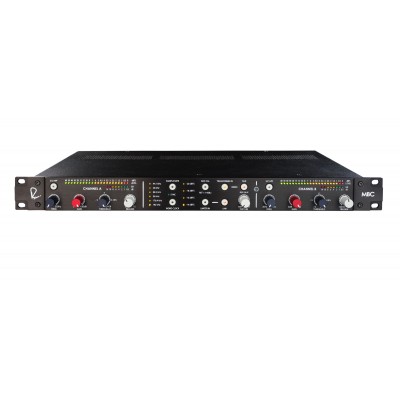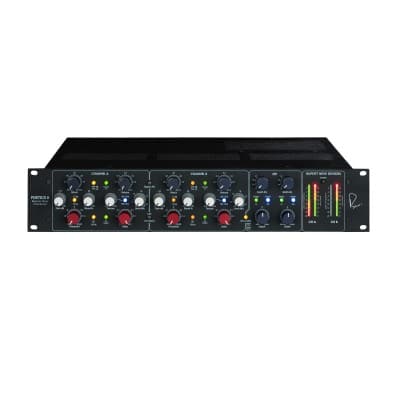 Brand: Rupert Neve DesignsDescription from Woodbrass : Based on the Portico 5017 Mobile Pre, the 517 provides world-class transformer-coupled micpreamp, compressor and DI circuitry with Vari-phase, Silk and DI/mic blending capabilities all in a single 500 series module. Mic Pre and Instrument Amplifier The 517 s mic pre based on the TEC Award-winning Portico 5017 provides up to 66dB of gain, polarity-reverse and phantom power switches, and the Silk circuit for a more vintage vibe. The separate instrument amplifier includes 30dB of gain, a ground lift, variable phase and an instrument Thru connection. Blended Use Used as a single channel device for instruments, the 517 can be used to phase align, combine and compress direct and amplified signals. To achieve this, use the DI for the instrument s direct signal and the mic preamp for the speaker cabinet signal. The blend control is used for mixing direct and amplified signals to achieve the desired tonal blend between the two sources, and the variphase is used to minimize or extenuate phase cancellations between the two signals. To compress the blended signal, the internal compressor jumper must be set to the blend path (this is the default setting). This technique could also be used to create a single, mixed output of a guitar and vocals. The Compressor Based around a new LDR (light dependent resister) design, the 517 s opto-coupler compressor has been simplified to a single threshold control with auto make up gain. By default, the compressor is set to a fixed 2:1 ratio with fixed attack and release. To set the compressor, simply dial the threshold control down until the desired amount of compression is achieved. An LED light indicates when the compressor is active. Vari-Phase In addition to the standard polarity reverse, the 517 s vari-phase control may be used to adjust phase incrementally. This control is useful any time two signals derived from the same source are combined. For instance, even with careful placement, the combination of close miced drums and overheads, can often yield hollow-sounding results. By using the variable phase adjust, the direct signal can be phase rotated until the signals are naturally aligned. This technique is also extremely useful when combined with the internal blend control on instruments. A bassist or guitarist using both direct and mic d signals can blend the two into a single output, using the variable phase to reach an optimal alignment. By adjusting the phase in the 517, the musician or engineer can find the absolute best mic position without regard to the phase relation to the direct signal. SPECIFICATIONS - Frequency Response: Main Output, no load, 0.2 dB @ 10 Hz 3 dB @ 160 kHz - Noise: Measured at Main Output, unweighted, 22 Hz 22 kHz, Terminated 150 Ohms. With gain at unity better than 100 dBu With gain at 66 dB better than 62 dBu Equivalent Input Noise better than 128 dBu Noise Factor 1.5dB - Maximum Output Level: Maximum output from 20 Hz to 40 kHz is 23 dBu. - Total Harmonic Distortion and Noise: @ 1 kHz, 20 dBu output: Main Output: Better than 0.001% @ 20 Hz, 20 dBu output: Main Output: Better than 0.002% Silk Engaged: Better than 0.2% Second harmonic - Crosstalk: Measured channel to channel: Better than 90 dB @ 15 kHz. - Phantom Power: 48 Volts DC ±1%
|
All items : Studio : Signal Processors pour ACCESSORIES - STUDIO/LIVE |
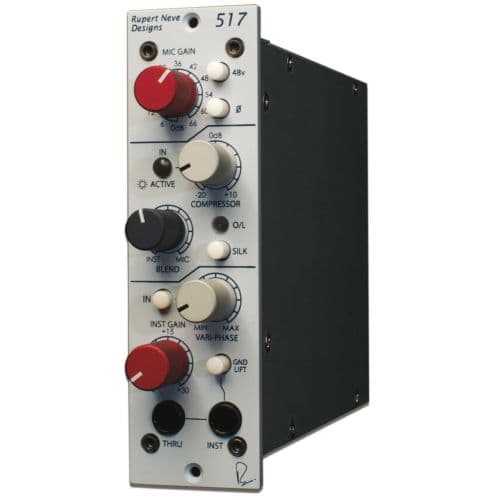
 Woodbrass
Woodbrass
